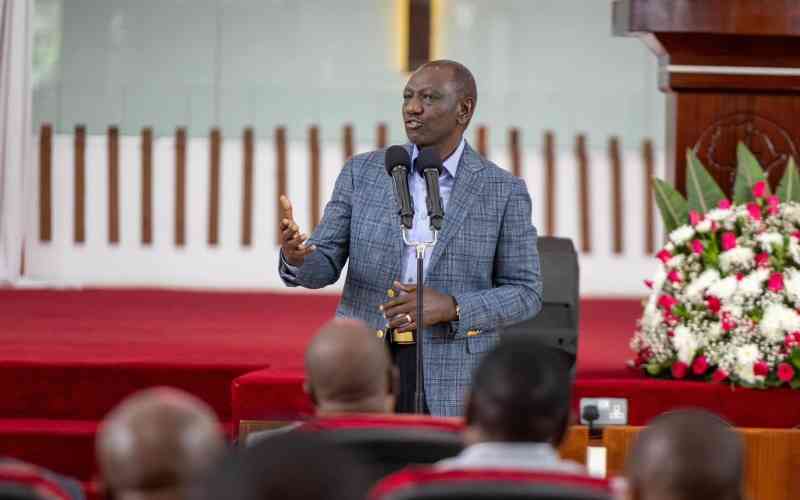×
The Standard e-Paper
Smart Minds Choose Us

In a political journey unlike any other, then Deputy President William Ruto masterfully turned Kenya's pulpits into powerful podiums, weaving his way into the hearts of the faithful.
With the blessing of religious leaders across the nation, he embarked on a mission that saw him move from church to church, transforming sermons into rallying cries.